Hyperthyroidism
How to submit an article:
- Registered users can submit any published journal article that has a unique DOI (Digital Object Identifier) name or link to Research Hub.
- For example, you can paste the full DOI link:
https://doi.org/10.1109/5.771073or just the DOI name:10.1109/5.771073into the field above and click submit. - The person who is first to submit a valid article to Research Hub will forever be credited for it, and every article submission earns you +6 Research Points.
Published research studies are articles that present the findings of original research that has undergone a peer-review process and has been made publicly available in scholarly journals, books or other media.
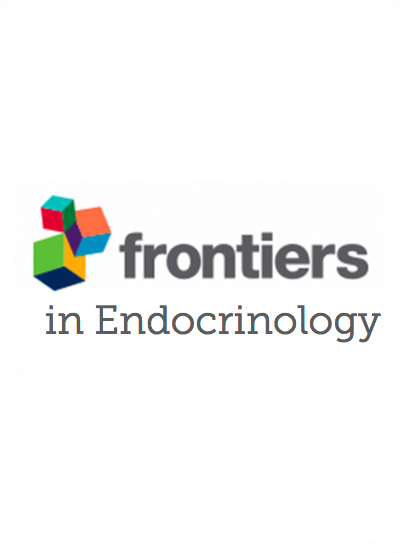
Effectiveness and potential mechanism of Jiawei-Xiaoyao-San for hyperthyroidism: a systematic review
2023 Sep 13 Frontiers in Endocrinology Ma W, Zhang X, Zhao R, Tang Y, Zhu X, Liu L, et al.
Systematic Review Jia Wei Xiao Yao SanJia Wei Xiao Yao San could potentially enhance the effectiveness of antithyroid drugs in treating hyperthyroidism especially in symptom relief and side effect reduction.
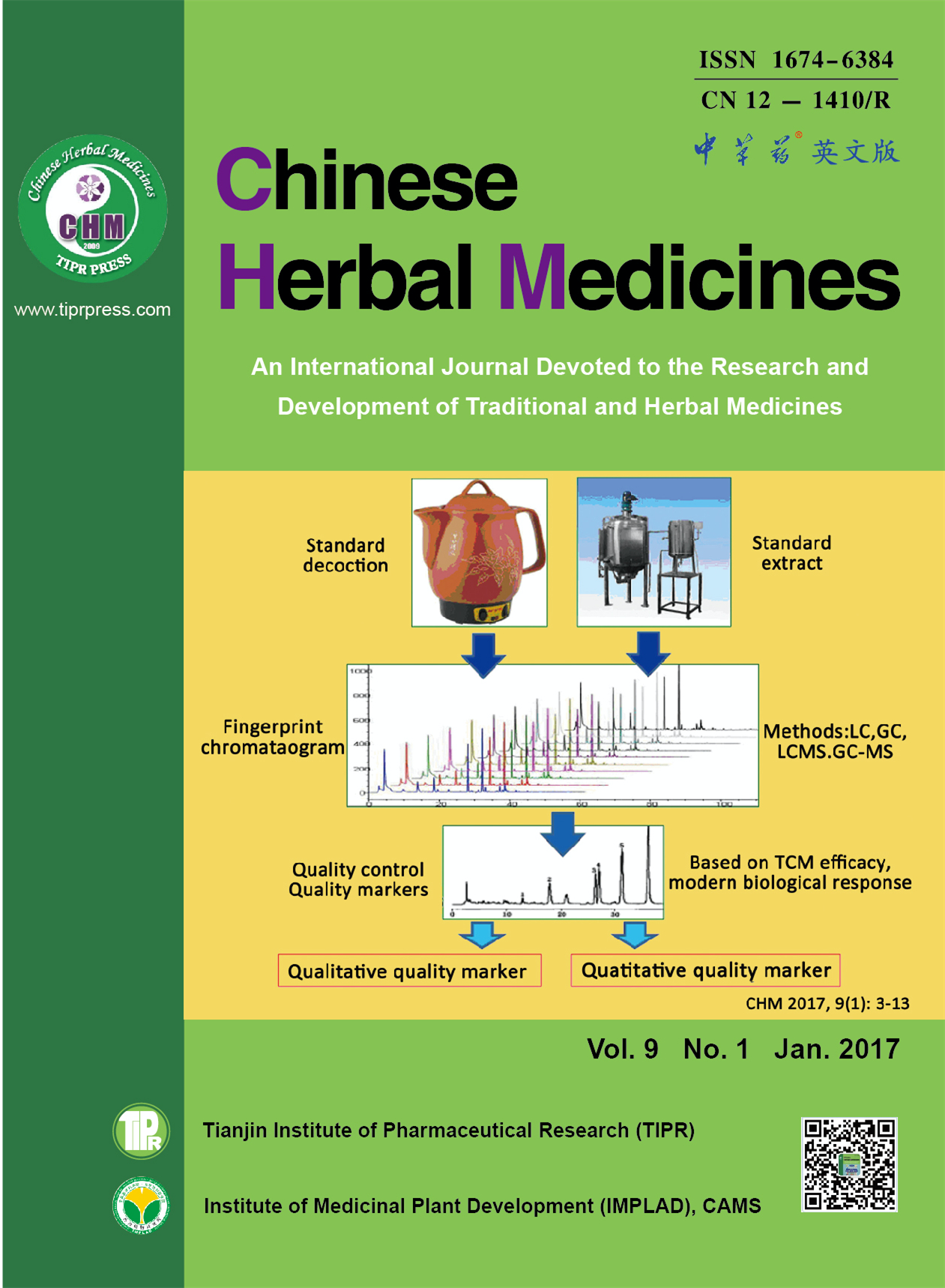
Emerging therapeutic role of Prunella vulgaris in thyroid disease
2022 Jul Chinese Herbal Medicines Zhang W, Wuhan Q, Na M, Hu R, Mu Q, Bao X
Herbs such as P. vulgaris have great potential for treating thyroid disorders owing to their anti-oxidation and immunological effects and are frequently used as ingredients in herbal recipes. P. vulgaris is thought to combat drug toxicity within the body, therefore its own active ingredients have attracted much attention. The use of P. vulgaris with other drugs resulted in significant elimination of swollen nodules, reduced inflammatory response, and improved thyroid function. These effects of P. vulgaris benefit the clinical treatment of thyroid disease while having reduced drug-induced side effects and improved therapeutic effects. However, with only a few studies presenting treatment with Prunella vulgaris alone, further investigation is needed to to explore the physiological mechanisms.
Review Article Xia Ku Cao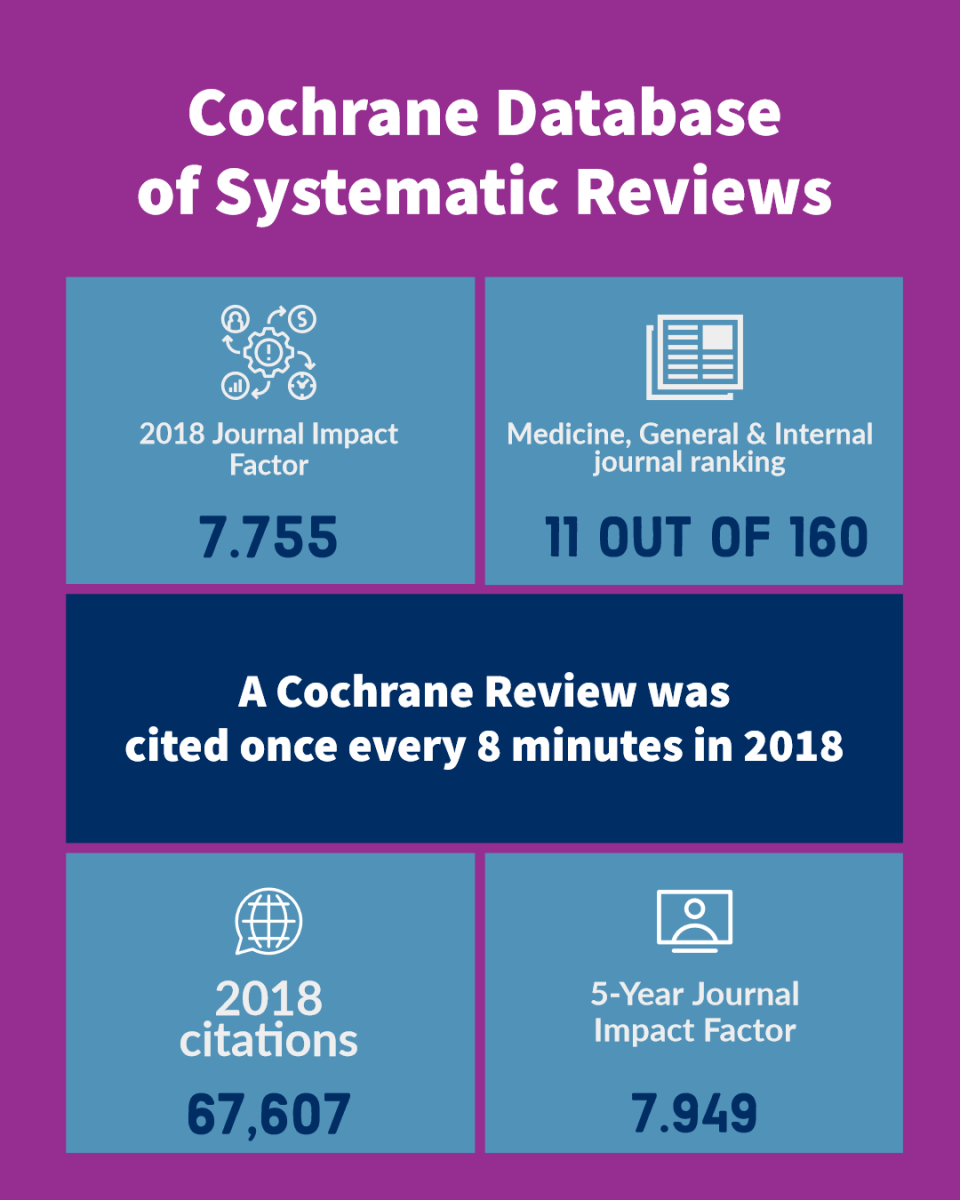
Chinese herbal medicines for hyperthyroidism
2022 Apr 18 Cochrane Database of Systematic Reviews Zeng X, Yuan Y, Wu T, Yan L, Su H
Systematic ReviewChinese herbal medicines combined with antithyroid drugs may offer benefits in lowering relapse rates, reducing the incidence of adverse effects, relieving symptoms, improving thyroid antibody status and thyroid function.
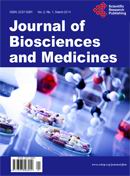
Summary of Experience in Treating Hyperthyroidism with TCM Syndrome Differentiation
2022 Jan Journal of Biosciences and Medicines Chen X, Wang L, Liu Z, Ren K, Qi G
In accordance with the principle of TCM syndrome differentiation, hyperthyroidism is classified according to different syndrome types and different treatment methods are adopted, and the effect is remarkable.
Hyperthyroidism
Successful intervention with Chinese herbal medicine for hyperthyroidism: Two case reports and a literature review
2021 Jul Explore: The Journal of Science & Healing Chia-Hui Lin, Chun-Pang Lin, Sheng-Teng Huang
As for the hyperthyroidism almost was controlled by Western medicine instead of CHM, we report that JWXYS as well as Prunella vulgaris, Fritillaria thunbergii, and Crassostrea gigas was a safe and effective formula and we propose that CHM may be considered as either a first choice or combination therapy to control hyperthyroidism.
Xia Ku Cao Mu Li Zhe Bei Mu Jia Wei Xiao Yao San HyperthyroidismResearch insights are moderated by the Research Hub team and offer an at-a-glance overview of interesting research findings.

2023 Frontiers in Endocrinology
Jia Wei Xiao Yao San could potentially enhance the effectiveness of antithyroid drugs in treating hyperthyroidism especially in symptom relief and side effect reduction.
Systematic Review Jia Wei Xiao Yao San
Effectiveness and potential mechanism of Jiawei-Xiaoyao-San for hyperthyroidism: a systematic review
Ma W, Zhang X, Zhao R, Tang Y, Zhu X, Liu L, et al.

2022 Cochrane Database of Systematic Reviews
Chinese herbal medicines combined with antithyroid drugs may offer benefits in lowering relapse rates, reducing the incidence of adverse effects, relieving symptoms, improving thyroid antibody status and thyroid function.
Systematic Review
Chinese herbal medicines for hyperthyroidism
Zeng X, Yuan Y, Wu T, Yan L, Su H
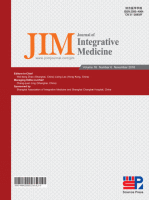
2018 Journal of Integrative Medicine
Findings indicated reductions in patient symptoms and improvements in biomarkers where acupuncture was used alone or in combination therapy against thyroid-relevant illnesses.
Systematic Review Thyroid Disease
An overview of the contribution of acupuncture to thyroid disorders
Cheng FK
Review Articles
Review articles summarise and critically evaluate the current state of research on a specific topic or field by synthesising multiple primary research studies.

Effectiveness and potential mechanism of Jiawei-Xiaoyao-San for hyperthyroidism: a systematic review
2023 Sep 13 Frontiers in Endocrinology Ma W, Zhang X, Zhao R, Tang Y, Zhu X, Liu L, et al.
Systematic Review Jia Wei Xiao Yao SanJia Wei Xiao Yao San could potentially enhance the effectiveness of antithyroid drugs in treating hyperthyroidism especially in symptom relief and side effect reduction.

Emerging therapeutic role of Prunella vulgaris in thyroid disease
2022 Jul Chinese Herbal Medicines Zhang W, Wuhan Q, Na M, Hu R, Mu Q, Bao X
Herbs such as P. vulgaris have great potential for treating thyroid disorders owing to their anti-oxidation and immunological effects and are frequently used as ingredients in herbal recipes. P. vulgaris is thought to combat drug toxicity within the body, therefore its own active ingredients have attracted much attention. The use of P. vulgaris with other drugs resulted in significant elimination of swollen nodules, reduced inflammatory response, and improved thyroid function. These effects of P. vulgaris benefit the clinical treatment of thyroid disease while having reduced drug-induced side effects and improved therapeutic effects. However, with only a few studies presenting treatment with Prunella vulgaris alone, further investigation is needed to to explore the physiological mechanisms.
Review Article Xia Ku Cao
Chinese herbal medicines for hyperthyroidism
2022 Apr 18 Cochrane Database of Systematic Reviews Zeng X, Yuan Y, Wu T, Yan L, Su H
Systematic ReviewChinese herbal medicines combined with antithyroid drugs may offer benefits in lowering relapse rates, reducing the incidence of adverse effects, relieving symptoms, improving thyroid antibody status and thyroid function.

An overview of the contribution of acupuncture to thyroid disorders
2018 Nov Journal of Integrative Medicine Cheng FK
Systematic Review Randomised Controlled Trial Thyroid DiseaseFindings indicated reductions in patient symptoms and improvements in biomarkers where acupuncture was used alone or in combination therapy against thyroid-relevant illnesses.
Clinical Trials
Clinical trials are research studies that involve people and are conducted to evaluate the safety and efficacy of new treatments or interventions, such as drugs, medical devices, or behavioural therapies.
Study Protocols
Published study protocols are detailed plans that outline the objectives, methodology, statistical analyses, and organisation of a research study that have been made publicly available for others to review and use as a reference.
Presentation Slides

Systematic Review
Jia Wei Xiao Yao San could potentially enhance the effectiveness of antithyroid drugs in treating hyperthyroidism especially in symptom relief and side effect reduction.
Ma W, Zhang X, Zhao R, Tang Y, Zhu X, Liu L, Xu M, Wang G, Peng P, Liu J, Liu Z

Systematic Review
Chinese herbal medicines combined with antithyroid drugs may offer benefits in lowering relapse rates, reducing the incidence of adverse effects, relieving symptoms, improving thyroid antibody status and thyroid function.
Zeng X, Yuan Y, Wu T, Yan L, Su H

Systematic Review
Findings indicated reductions in patient symptoms and improvements in biomarkers where acupuncture was used alone or in combination therapy against thyroid-relevant illnesses.
Cheng FK
Executive Summary
Write an executive summary in the form of a blog article on the topic of "Research into Chinese medicine treatment for Hyperthyroidism" summarising the research below and using language that can be easily understood by patients and avoiding medical jargon using a professional and caring tone of voice.
Write an executive summary in the form of a blog article on the topic of "Researched Chinese medicine treatments for Hyperthyroidism" summarising the research below in an objective and easy to understand way, and using language that can be easily understood by patients. Group the article into Chinese medicine treatments first, followed by nutrition and other treatments. Avoid using medical jargon and use a professional and caring tone of voice.
Write me a concise but easy to understand executive summary on the topic of "Chinese medicine treatments for Hyperthyroidism" based on the following research that I will give you. Your summary should be 2 paragraphs long in Australian English spelling and include references to the studies.
A Systematic Review published in 2023 in the journal Frontiers in Endocrinology found that Jia Wei Xiao Yao San could potentially enhance the effectiveness of antithyroid drugs in treating hyperthyroidism especially in symptom relief and side effect reduction. To evaluate this claim, a systematic and comprehensive dive into eight databases and three trial registries up until May 2023 was performed. From this, Randomized Controlled Trials (RCTs) were earmarked and subjected to further analysis using the Review Manager software application (RevMan 5.4) and Stata 14.0. Assessments of bias in these studies were conducted using the Cochrane risk of bias tool 1.0, while the GRADE tool was implemented for overall quality assessment. In addition, any case reports utilizing JWXYS in singular use and relevant pharmacological studies were summarized for further understanding. This investigation involved 13 RCTs with a total of 979 participants. It was found that, when compared with standalone antithyroid drug treatment, the combination of JWXYS and antithyroid drugs resulted in improved control of thyroid hormones, better efficacy in treating traditional Chinese medicinal syndrome, lesser incidence of goiter, fewer side effects, and lower levels of thyroid stimulating hormone receptor antibodies. Furthermore, dosage reduction of antithyroid drugs when used in combination with JWXYS also led to fewer side effects. However, when compared to antithyroid drugs treatment in a single trial, JWXYS showed mixed results indicating it is not recommended for use as a standalone treatment except in patients intolerant to antithyroid drugs. The evaluation of three case reports highlighted that patients may opt for traditional Chinese medicine only as an alternative due to severe side effects and recurrent relapses. Three other pharmacological studies showed the potential of JWXYS in restoring Th17/Treg balance, regulating thyroid cell growth, and alleviating oxidative stress in liver.
A Systematic Review published in 2022 in the journal Cochrane Database of Systematic Reviews found that Chinese herbal medicines combined with antithyroid drugs may offer benefits in lowering relapse rates, reducing the incidence of adverse effects, relieving symptoms, improving thyroid antibody status and thyroid function. The results suggest that traditional Chinese herbal medicines added to other routine treatment have a therapeutic potential for people with hyperthyroidism. However, due to methodological limitations, we could not identify a well‐designed trial to provide strong evidence for Chinese traditional herbal medicine in the treatment of hyperthyroidism. Thus, we currently cannot recommend any single preparation or formulation for clinical use.
A Systematic Review published in 2018 in the journal Journal of Integrative Medicine found that Findings indicated reductions in patient symptoms and improvements in biomarkers where acupuncture was used alone or in combination therapy against thyroid-relevant illnesses. Analysing 29 clinical projects that were retrieved from 29 major digital databases and include 1757 patients aged 7–79 years from China, Italy, Korea, Macedonia and Russia, this narrative review offers an overview of the efficacy, and evaluated the safe and cost-effective use of acupuncture against hyperthyroidism, hypothyroidism and thyroid-relevant illnesses. Findings indicated reductions in patient symptoms and improvements in biomarkers where acupuncture was used alone or in combination therapy. In addition to showing the role of acupuncture as an alternative and complementary medicine or as an adjunctive therapy for curative and rehabilitative purposes, more well-designed researches are needed to achieve reliable data.
Moderation Tools
Topic
Sign In
Users not signed in are limited to viewing the 5 most recent items of content.